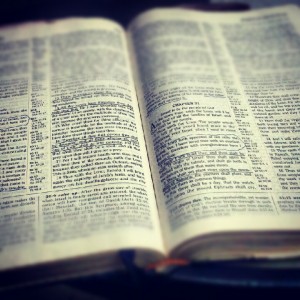Almost since the first Bibles were mass printed in Germany, attacks on Scripture have shipwrecked the faith of many who might have believed.
One of the most successful methods of deconstructing the Bible, ironically, is also one of the most bizarre. The alleged “Documentary Hypothesis,” which incubated in seminaries for decades before being unleashed on the public via commentaries, articles, and speeches, basically claims that we can’t know who wrote the early books of the Bible.
For the longest, some scholars alleged that Moses (traditionally thought of as the “editor” of the Pentateuch) couldn’t even write. The Bible says he could, and as an Egyptian prince, he was surely the recipient of an advanced education in the ancient Near East.
Past scholars like Robert Dick Wilson presented marvelous evidences that the Bible is exactly what it claimed to be, and that it was recorded accurately.
One view that I believe to be plausible is that the early chapters of Genesis follow a “toledot” model, by which the patriarchs recorded their own stories. These in turn were compiled by Moses at a later date.
A toledot (Hebrew, meaning “generations”) was a signature of sorts, indicated by the phrase, “these are the generations of…” For example, Isaac would have contributed his own story.
An interesting example and indication that Genesis was recorded and written down by eyewitnesses is found in Genesis 33:18:
“And Jacob came to Shalem, a city of Shechem, which is in the land of Canaan, where he came from Padan-aram; and pitched his tent before the city.”
Jacob, the son of Isaac and grandson of Abraham, was then living in Canaan; notice the phrase, “is in the land of Canaan.” This would be a strong indication that Jacob himself wrote this, since it is present-tense. Also, he had to provide some detail at that time about the city of Shalem. Today of course, and soon after he wrote, the city of Jerusalem became the most famous city in the world, arguably. If this story was recorded much, much later (as the critical scholars allege), the writer would simply have said something like, “And Jacob came to Jerusalem.” Period.
This is but one internal evidence that Scripture is accurate, dependable, and the very Word of God. What follows logically is that the Bible’s great promises, both corporate and to individuals, are trustworthy.
What is the Bible to you?


